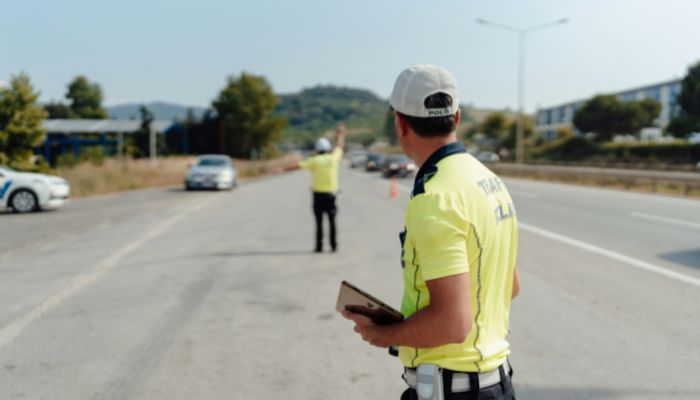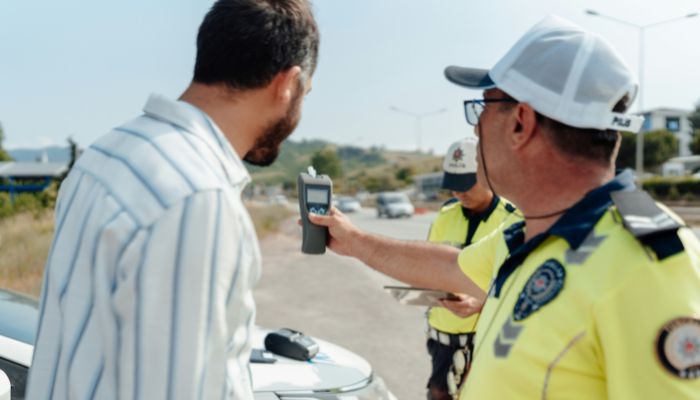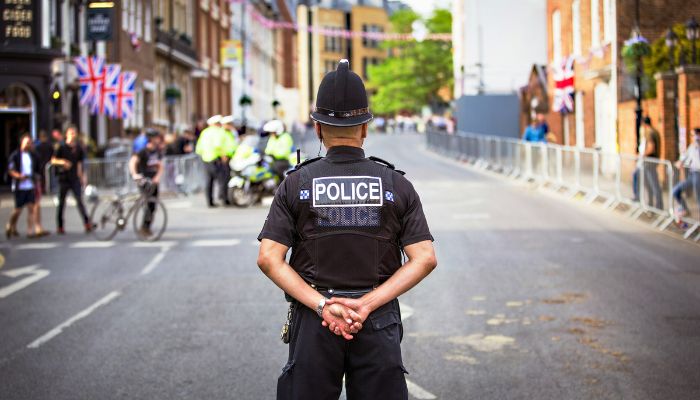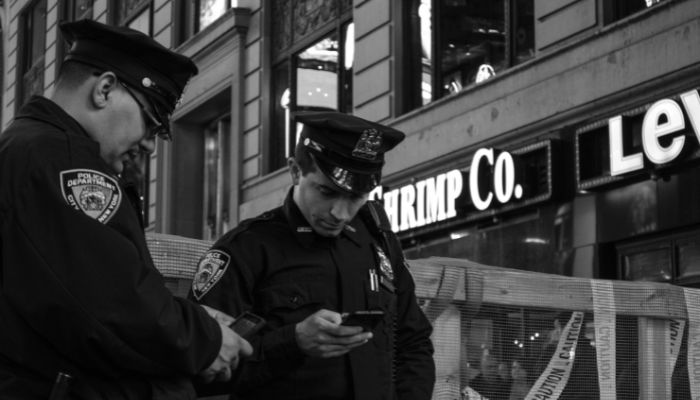
The time it takes for police to track a phone varies widely depending on the technology employed, legal requirements, and case specifics. Utilizing cell tower triangulation, GPS data, and sometimes Wi-Fi networks, the process can be quick, particularly in emergencies. Legal protocols typically necessitate warrants, and network congestion or device type may affect speed.
Rural or densely populated areas may also present challenges. While emergency tracking is expedited, routine cases involve more procedural steps. To understand the complexities and nuances of phone tracking, keep engaging with this topic.
Understanding Cell Phone Tracking
process involves triangulating signals between cell towers, utilizing GPS data, and sometimes leveraging Wi-Fi networks. Despite these advanced methods, privacy concerns are paramount, as the extent to which personal data is accessed and retained remains a sensitive issue.
To address these privacy concerns, the warrant requirement for phone tracking ensures a balance between investigation needs and personal privacy rights.
Technology limitations also play a critical role; for instance, the accuracy of location data can vary based on environmental factors and the type of device being used. Urban areas with numerous cell towers may offer better location accuracy, whereas rural areas might pose challenges.
Data retention policies further complicate matters, as service providers differ in how long they store location information, impacting the speed and reliability of tracking efforts.
High-profile cases and media coverage often shape public perception of cell phone tracking. They can either increase or decrease trust in law enforcement’s ability to balance security with privacy rights. Understanding these aspects is key to grasping how cell phone tracking works and the many factors that affect its effectiveness.
Legal Requirements for Tracking

The legal requirements for tracking a phone are stringent and multi-faceted, reflecting the need to balance law enforcement objectives with individual privacy rights. Privacy concerns are paramount, necessitating that police obtain court orders before tracking an individual’s phone. These court orders usually take the form of warrants, which require a demonstration of probable cause. This legal safeguard ensures that phone tracking is not conducted arbitrarily.
Data retention laws significantly impact investigations. Telecommunications companies must retain data for a specific period, allowing law enforcement to request access through legal channels. This retained data helps establish accurate locations, which is crucial for the success of investigations.
In emergency situations, the legal framework allows for expedited processes. For example, if there is an imminent threat to life, law enforcement may bypass the usual requirements temporarily, although subsequent judicial review is often necessary.
Legal requirements for phone tracking aim to protect individual privacy while allowing law enforcement to perform their duties effectively. Stringent regulations ensure that tracking happens legally and responsibly, maintaining this balance.
Factors Influencing Tracking Time
Several factors can significantly influence the time it takes for police to track a phone.
- First, technology limitations play a crucial role. The effectiveness of tracking tools and the compatibility with various phone models and network types can vary, potentially causing delays.
- Additionally, jurisdictional issues may arise, especially when the phone crosses state or international boundaries. These complexities often require coordination between multiple agencies, further extending the tracking timeframe.
- Network congestion is another critical factor. High traffic on cellular networks can slow down the process of triangulating a phone’s location. This is particularly problematic in densely populated areas or during peak usage times.
- Furthermore, data accuracy is paramount; outdated or imprecise information can lead to significant delays as authorities may need to verify and cross-check data from multiple sources.
- Lastly, suspect cooperation can either expedite or hinder the process. If a suspect actively evades detection by turning off their phone or using location-spoofing software, tracking becomes exponentially more challenging and time-consuming.
On the other hand, suspects who are compliant or unaware of tracking efforts can be located more swiftly. Each of these factors can significantly influence the overall time required for police to track a phone.
Tracking Process Explained

Initiating the phone tracking process typically involves multiple steps to pinpoint the device’s location accurately. The first step is to utilize the technology used for tracking, which often includes GPS, Wi-Fi signals, and cell tower triangulation. These methods provide varying degrees of location accuracy depending on the environment and the device’s connectivity.
Law enforcement retrieves data from the mobile network provider, accessing call detail records (CDRs) and real-time location data to find the phone’s latest coordinates. The network’s capabilities are key, affecting the speed and accuracy of data retrieval and analysis.
Once the initial data is retrieved, the investigative procedures commence. These procedures include cross-referencing the retrieved data with other available information, such as surveillance footage or witness statements, to validate the accuracy of the location.
Throughout this process, maintaining high location accuracy is essential to ensure the phone’s position is correctly identified. Advanced technology, efficient data retrieval, and thorough investigations help law enforcement track a phone accurately and quickly.
Misconceptions About Phone Tracking
Many misconceptions surround the practice of phone tracking, leading to unrealistic expectations about its capabilities and limitations. Public perception often overestimates both the speed and precision with which authorities can locate a device, fueled by dramatized portrayals in media. In reality, phone tracking is governed by several critical factors that can impede its effectiveness and accuracy. Similarly, phone call tracking by law enforcement is often misunderstood due to unrealistic portrayals in media.
- Privacy concerns: The legal framework surrounding phone tracking requires law enforcement to obtain proper authorization, often a warrant, to protect individual privacy rights. This process can be time-consuming, adding delays to the tracking.
- Technology limitations: While modern technology has made phone tracking more feasible, it is not infallible. Factors such as signal strength, geographical obstructions, and the type of device being tracked can significantly impact data accuracy.
- Ethical implications: The use of phone tracking raises ethical questions, including potential misuse and the surveillance of individuals without their knowledge. Ensuring that tracking is conducted responsibly and ethically is paramount, often complicating the process.
Understanding these nuances helps in tempering expectations and appreciating the complexities involved in phone tracking. The interplay of legal, technical, and ethical aspects underscores why phone tracking is not as straightforward as commonly believed.
Real-Life Examples of Phone Tracking

How accurately does phone tracking work in real-world scenarios? One notable instance is the 2013 Boston Marathon bombing, where law enforcement utilized phone tracking to identify and apprehend the suspects. This rapid response highlighted the efficacy of phone tracking in enhancing public safety. However, the technology is not without its limitations. For example, dense urban areas can create signal interference, reducing tracking accuracy.
Privacy concerns often arise in such cases, especially when the scope of data retention is broad. The collection and storage of location data can lead to unintended privacy breaches, raising ethical considerations. Law enforcement agencies must balance the need for timely and precise data with the individual’s right to privacy.
In another case, phone tracking was instrumental in locating a missing person in a remote area, showcasing its utility in search and rescue operations. Yet, technological limitations such as poor signal strength in rural regions can impede effectiveness.
These real-life examples underscore the dual-edge nature of phone tracking. While it serves as a vital tool for public safety, it necessitates strict ethical guidelines and robust data protection measures to mitigate privacy concerns.
Conclusion
The time required for police to track a phone varies significantly based on legal prerequisites, technological factors, and the specific circumstances of each case. The tracking process involves several steps, including obtaining legal authorization and coordinating with service providers. Common misconceptions about the speed and ease of phone tracking often overlook these complexities. Real-life examples demonstrate both the challenges and successes inherent in this multifaceted procedure.